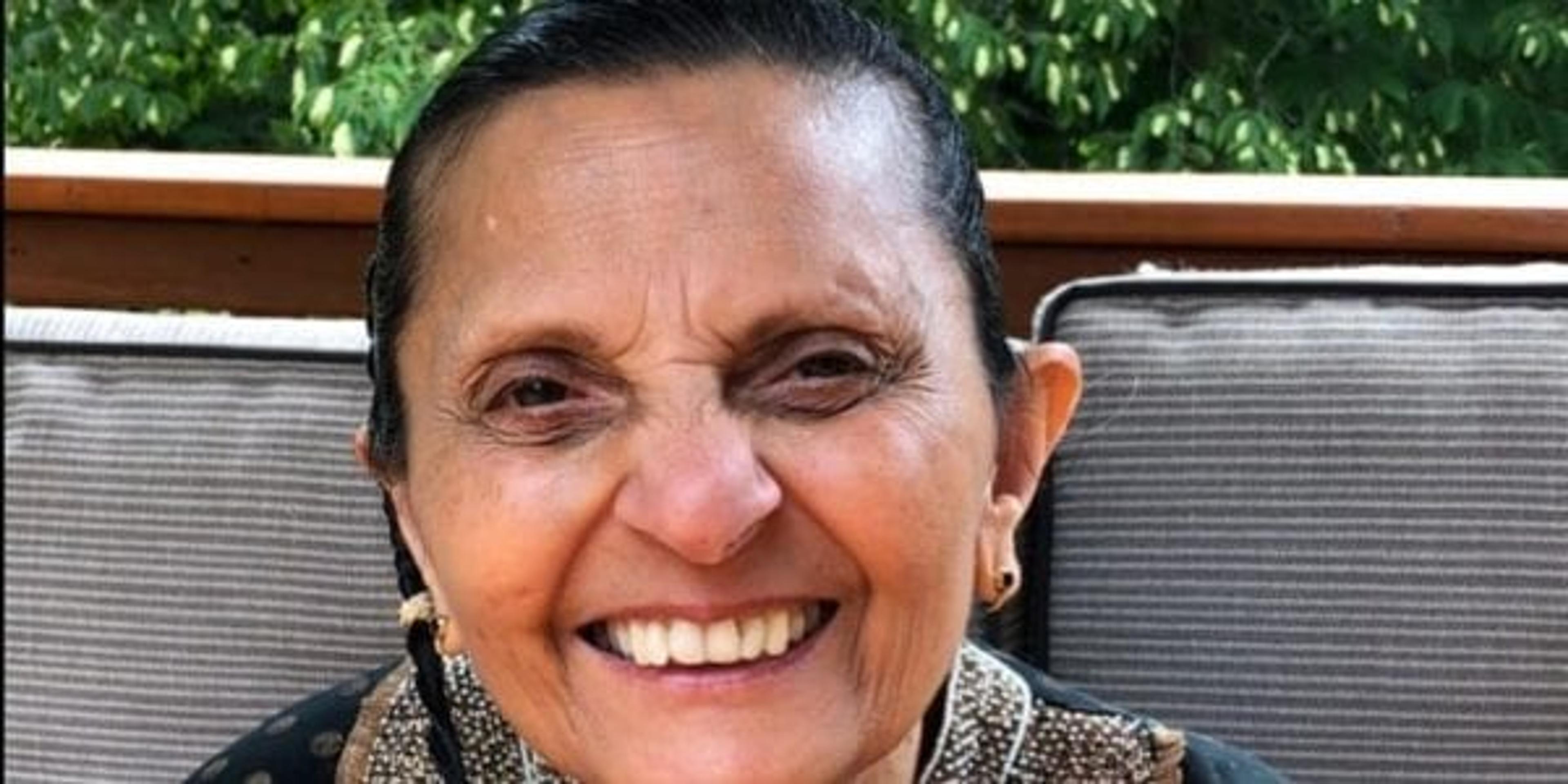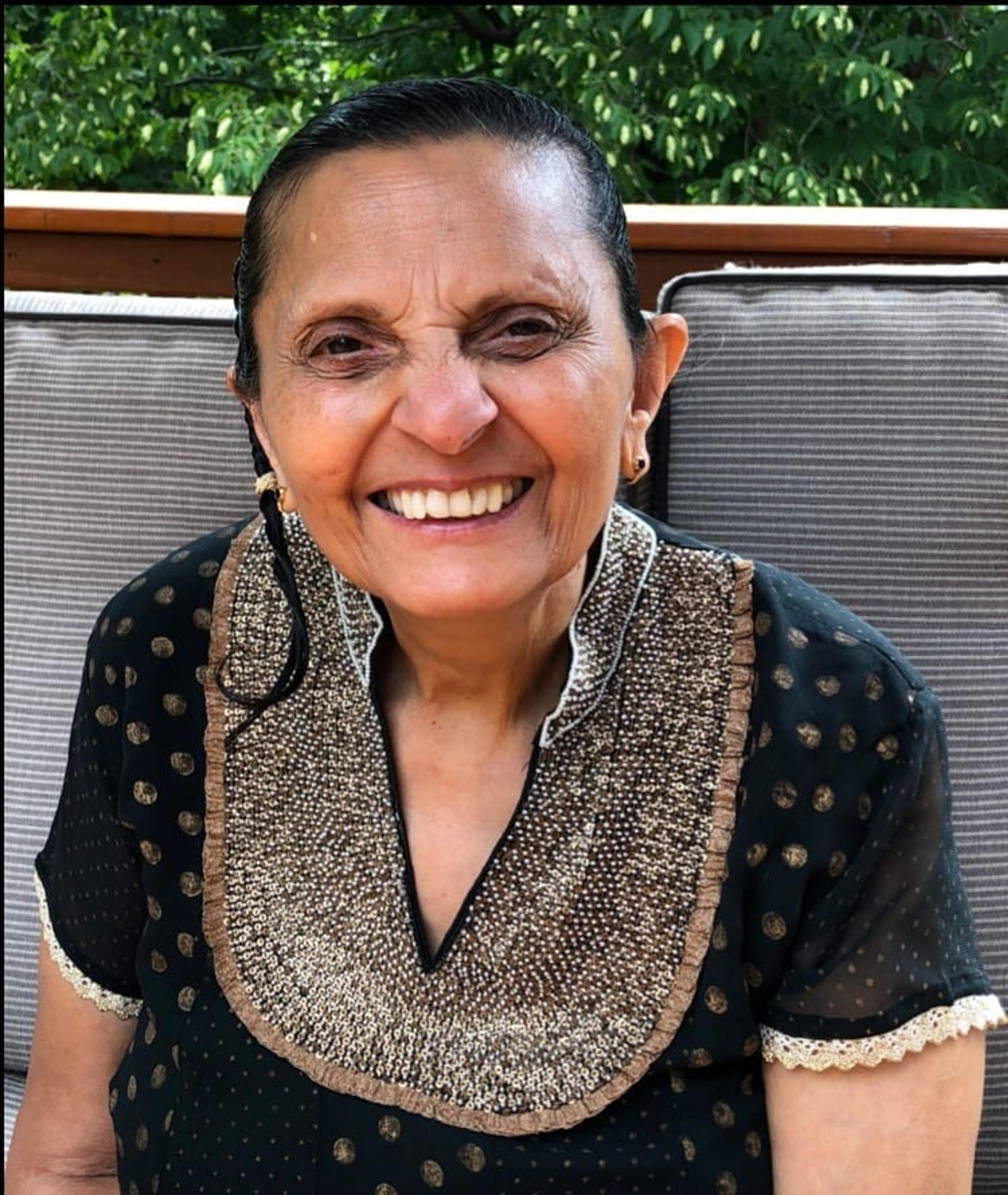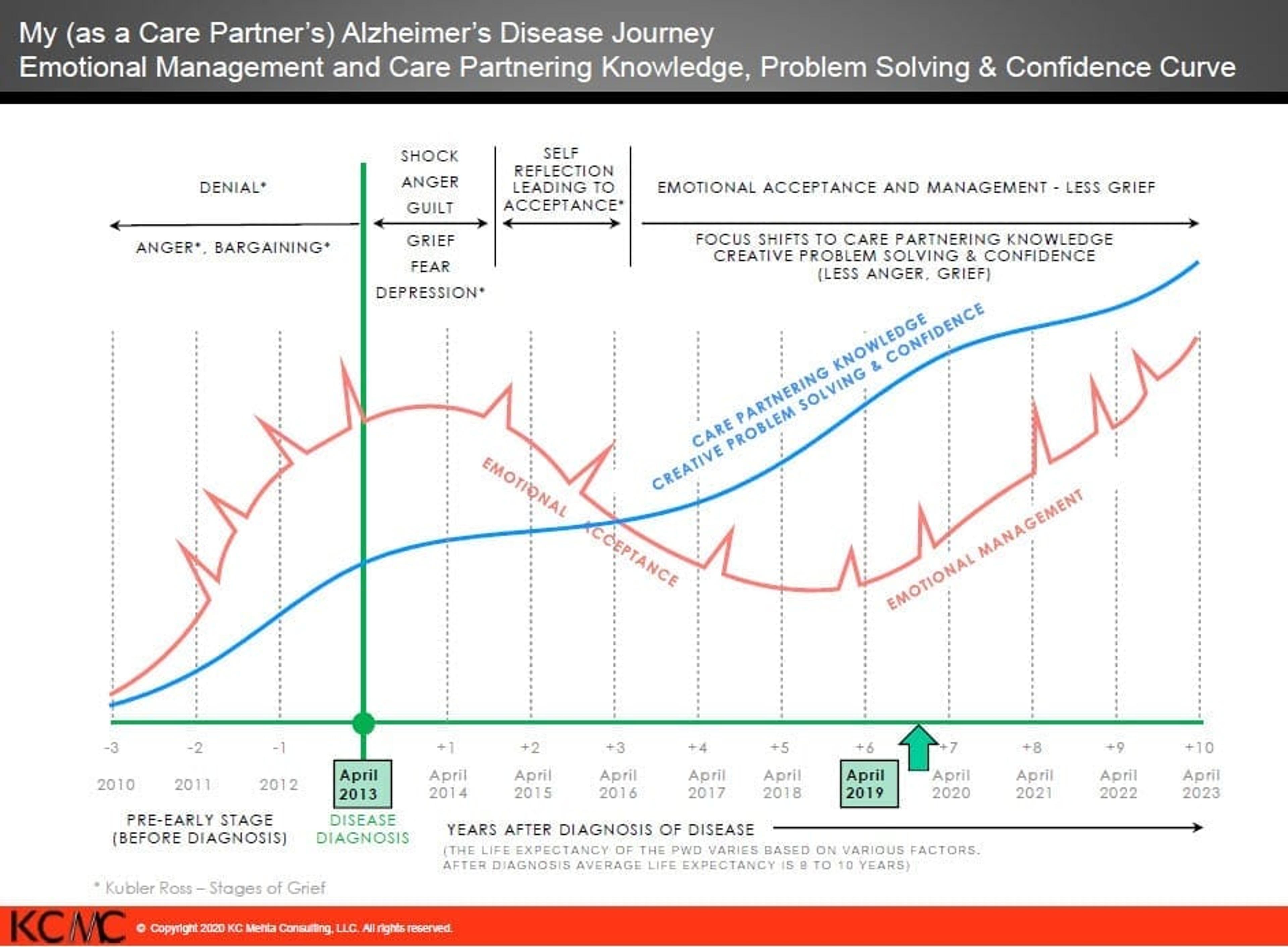Sumi 2.0: Becoming Sumi’s Care Partner

Julie Bitely
| 4 min read

Editor’s note: This is the second in a three-part blog series about KC Mehta’s experience caring for his wife, Sumi, who was diagnosed with Alzheimer’s disease at 59. Read the first post, “Sumi’s Smile: A Caregiving Love Story”, here and the final post, “Coping as Sumi’s Caregiver”, here.
…
There is a Sumi that exists before Alzheimer’s and a Sumi that lives now. KC straddles both worlds, trying to be present for “Sumi 2.0” as he affectionately refers to her. One thread that ties the old Sumi to the new is her smile, the one KC thought of under the stars all those years ago and the one that still gives him purpose today.

A recent photo of Sumi’s beautiful smile.
“A smile on Sumi’s face brightens my day,” KC said. “And a frown provides me with a challenge to find the best way to divert and deflect her, so I can change her mood and perhaps see a smile.”
KC is precise in the way he describes his caregiving journey. The same qualities that made him an effective engineer have allowed him to analyze his response to the diagnosis and how it’s changed over time. He’s developed charts to try to help others see what they might experience.

One of KC’s charts detailing his emotional acceptance of Sumi’s diagnosis over time.
Caring for a partner with Alzheimer’s is like grieving in slow motion, he said. But, focusing on accepting and managing his emotions has helped. The initial diagnosis may cause shock, anger, grief, fear or depression for those experiencing it. For KC, he felt immense guilt, wondering if he’d been a good enough husband to Sumi while their relationship was still reciprocal.
He channeled those feelings into caring for and with Sumi. He serves as her hands when she needs him, but he also empowers her to perform tasks she’s still able to. They work together. “It cultivates love, mercy, compassion and patience,” he said. “It has taught me to control the controllable and manage the uncontrollable.”
Creative problem solving is one way KC puts his engineering background to work in caring for Sumi. He’s fitted a PVC cover on their shower handle to prevent Sumi from accidentally changing the temperature to a degree too cold or hot. When she was having a hard time eating because her plate would slip and slide on their table, he found a grippy placemat. Putting her smoothie in a bowl with a spoon helped her still get valuable nutrition when she didn’t want to drink out of a straw anymore. Watermelon keeps her hydrated when she doesn’t feel like drinking enough water.
Changing his emotional response has also been instrumental. “Emotional acceptance and management means recognizing that Sumi is slowly changing in front of me. Sumi is not a problem to be solved but someone to be cared for deeply with love, compassion, patience and mindfulness.”
He’s even found humor in how his reactions and care toward Sumi have changed. Before the Alzheimer’s diagnosis, Sumi’s snoring at night annoyed him.
“The same snoring used to bother me, now it’s a delight to me,” he said.
As her disease has progressed, KC’s charts show increasing confidence in his problem-solving skills as they relate to caretaking and his emotional acceptance and management. He acknowledges, however, that the emotional line isn’t a straight upward path – there are sharp highs and valleys. He expects the line to continue to change, especially as he contemplates losing his wife of so many years.
“No matter how much you’re prepared for it, you’re never prepared,” he said.
Raised in a competitive Indian society, KC said he exemplified “alpha male traits” at home and at work. He hated to lose arguments but now often finds himself letting petty grievances go, all for his Sumi and their harmony together.
“It feels good to purposely lose a point,” he said. “And I wish I had developed this awareness of letting go earlier in my life.”
…
This post is the second in a series of three. Check back tomorrow for “Coping as Sumi’s Caregiver”.
Last year, KC was one of six family caregivers honored by Area Agency on Aging 1-B, based on an essay he submitted to the organization’s “Caregiver Champions Contest”. If you’re a caregiver in need of advice or support, your local Area Agency on Aging can be a great resource for classes, support groups and even advice on finding respite care.
Want more content like this? Subscribe to our Midlife Map series here:
Please leave this field empty Interested in more of this content? We'll send related updates right to your inbox. Email Address *
Enjoy your new subscription!
Related content:
All photos courtesy of KC Mehta





